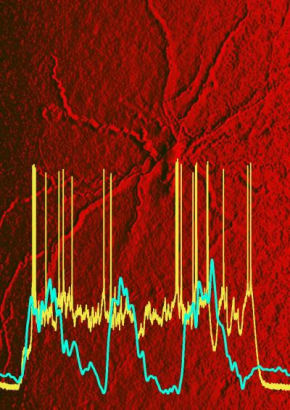
The brain parasite Toxoplasma gondii, found in an estimated 15 percent of the population, has been found to dramatically increase the production of dopamine, one of the brain’s key chemical messengers.T. gondii has previously been linked to a whole raft of brain disorders and some scientists speculate that the parasite affects human behavior on a mass scale. The new findings are the first to demonstrate that a parasite found in the brain of mammals can affect dopamine levels.
The dopamine discovery, made by a research group at the University of Leeds working with rodents, builds on the group’s earlier work which showed that the parasite encodes the enzyme for producing dopamine in its genome.
Lead investigator Glenn McConkey believes that the findings could ultimately shed light on treating human neurological disorders that are dopamine-related such as schizophrenia, attention deficit hyperactivity disorder and Parkinson’s disease.
McConkey’s research may explain how these parasites manipulate rodents’ behavior for their own advantage. Infected rodents lose their innate fear of cats, increasing the chances of being caught and eaten, which enables the parasite to return to its main host to complete its life cycle.
Dopamine is a natural chemical which helps control the brain’s reward and pleasure centers and regulates emotional responses such as fear. The presence of a certain kind of dopamine receptor is also associated with sensation-seeking, whereas dopamine deficiency in humans results in Parkinson’s disease. “Based on these analyses, it was clear that T. gondii can orchestrate a significant increase in dopamine production in neural cells,” noted McConkey.
McConkey now plans to investigate how the parasite enzyme triggers dopamine production and precisely how this may change behavior.
Related:
Discuss this article in our forum
Anchovies A Tasty Entrée Into The Marine World For Toxoplasma Gondii
Microorganisms Behind Schizophrenia And Alzheimer’s?
Cat Parasite Aiming For Global Male Domination








Comments are closed.